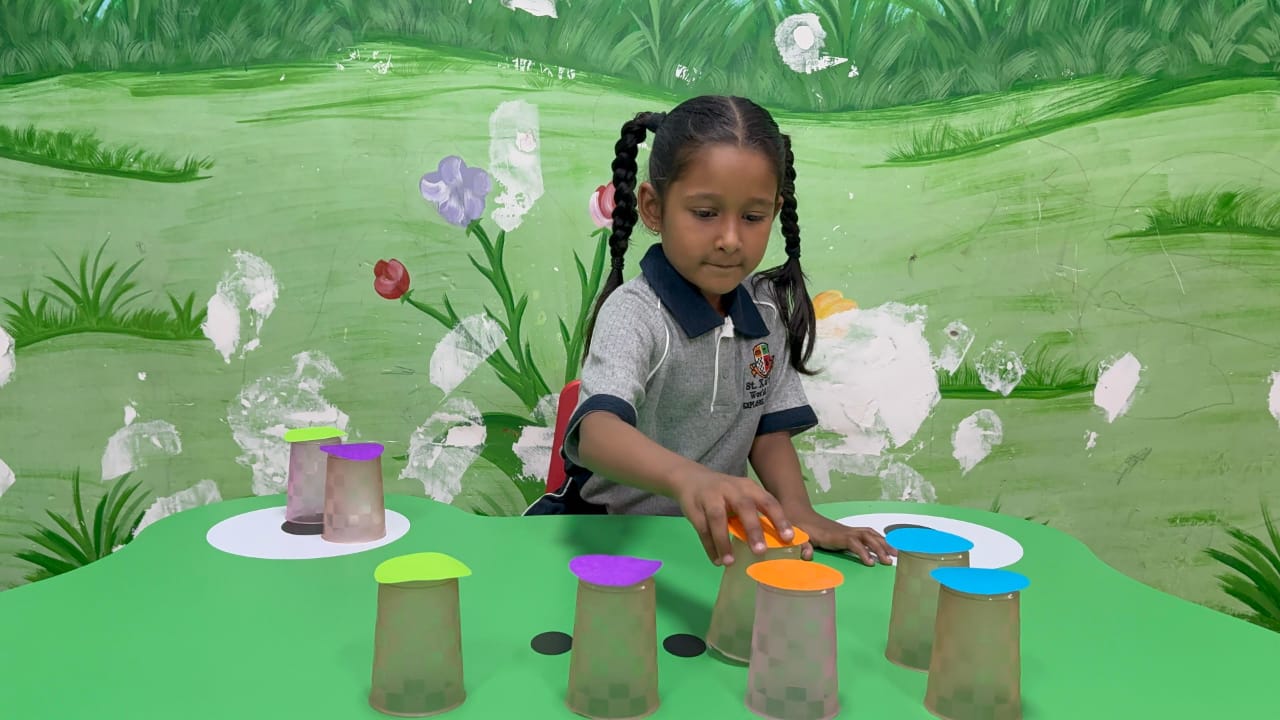
St Xaviers World School Guide For Fun And Focussed Learning
Let’s face it—studying doesn’t always feel exciting. With the pressure of exams and distractions everywhere, many students see it as a chore rather than a journey of discovery. But what if learning could be engaging, enjoyable, and even something you look forward to?
At St. Xavier’s World School, Ghaziabad, we believe that education should go beyond textbooks-it should spark curiosity, creativity, and a lifelong love for learning. Here, we share 8 practical and fun strategies to make studying enjoyable and effective for every student.
1. Make Learning a Game You’ll Want to Play
One of the easiest ways to make learning exciting is by turning it into a game. Create quizzes, challenge yourself with flashcards, or use interactive learning platforms like Quizlet or Kahoot. Even something as simple as setting a timer and awarding yourself points for completing sections can make studying feel less like work and more like play.
Gamification not only boosts engagement but also helps in better memory retention, making this a great tool for both quick revisions and long-term learning.
2. Mind Maps & Colors: Turning Pages into Pictures
Visuals can transform dull study material into something far more appealing. Use colourful highlighters, sticky notes, or diagrams to bring your notes to life. Mind maps, in particular, are a powerful tool to connect ideas and simplify complex topics.
Adding doodles or sketches to your notes isn’t just fun—it also strengthens memory by linking concepts to visuals. This method is especially effective for subjects requiring detail and recall, such as history, biology, or literature.
3. Fresh Spaces, Fresh Minds: The Power of Place
Studying at the same desk every day can feel monotonous. A change in environment, like studying in the garden, library, or a different room at home, can refresh your mind. Even small changes, such as rearranging your study table, can bring renewed energy and focus.
At St. Xavier’s, students are encouraged to explore different learning spaces on campus, from classrooms to outdoor areas, to make the process dynamic and engaging.
4. Celebrate Every Step: Study Rewards that Work
Motivation grows when you have something to look forward to. Break your study schedule into smaller chunks and reward yourself after completing each session. It could be a short walk, listening to music, or enjoying a quick snack.
These small rewards act as positive reinforcement, training your brain to associate studying with enjoyable outcomes. Over time, this makes the process less stressful and far more rewarding.
5. Family & Friends: Making Study a Shared Journey
Studying doesn’t have to be a solo journey. Group study sessions with friends can make learning interactive and fun. Explaining topics to one another deepens understanding, while group discussions often uncover new insights.
Family members can also join in by quizzing you or helping with revision games. Laughter, teamwork, and learning together not only lighten the stress of academics but also make the process more memorable.
6. Turn Studying into a Personal Competition
Set exciting and achievable goals to keep yourself motivated. For instance, challenge yourself to complete a chapter before your favourite playlist ends or aim to solve a set of problems within a set time.
These mini-challenges transform routine study into a rewarding experience filled with small victories. They also instil a sense of discipline and determination without adding unnecessary pressure.
7. Learning in Rhythm: The Role of Music & Motion
For many students, music can be a great companion to studying. Instrumental tracks, lo-fi beats, or classical tunes can improve focus and create a calm atmosphere.
Equally important is movement. Sitting in one place for hours can drain energy, so take regular walking breaks, stretch, or even try standing while studying. Movement keeps your body active and your mind alert, helping you reset and refocus when needed.
8. Find Your Study Style: Tailoring What Works for You
No two learners are the same. Some are most productive in the morning, while others thrive late at night. Some prefer digital notes, while others work better with handwritten material.
At St. Xavier’s, we encourage students to discover what works best for them and design routines tailored to their strengths. Personalizing your study plan makes the process more enjoyable and sustainable, ensuring consistency in the long run.
Bonus Tips to Stay Motivated
Beyond these strategies, here are a few simple yet powerful practices to make learning more effective:
· Track progress using planners or apps to feel accomplished after ticking off tasks.
· Avoid last-minute cramming by studying in shorter, consistent sessions daily.
· Visualize success by picturing the satisfaction of scoring well or mastering a concept-it keeps motivation high.
